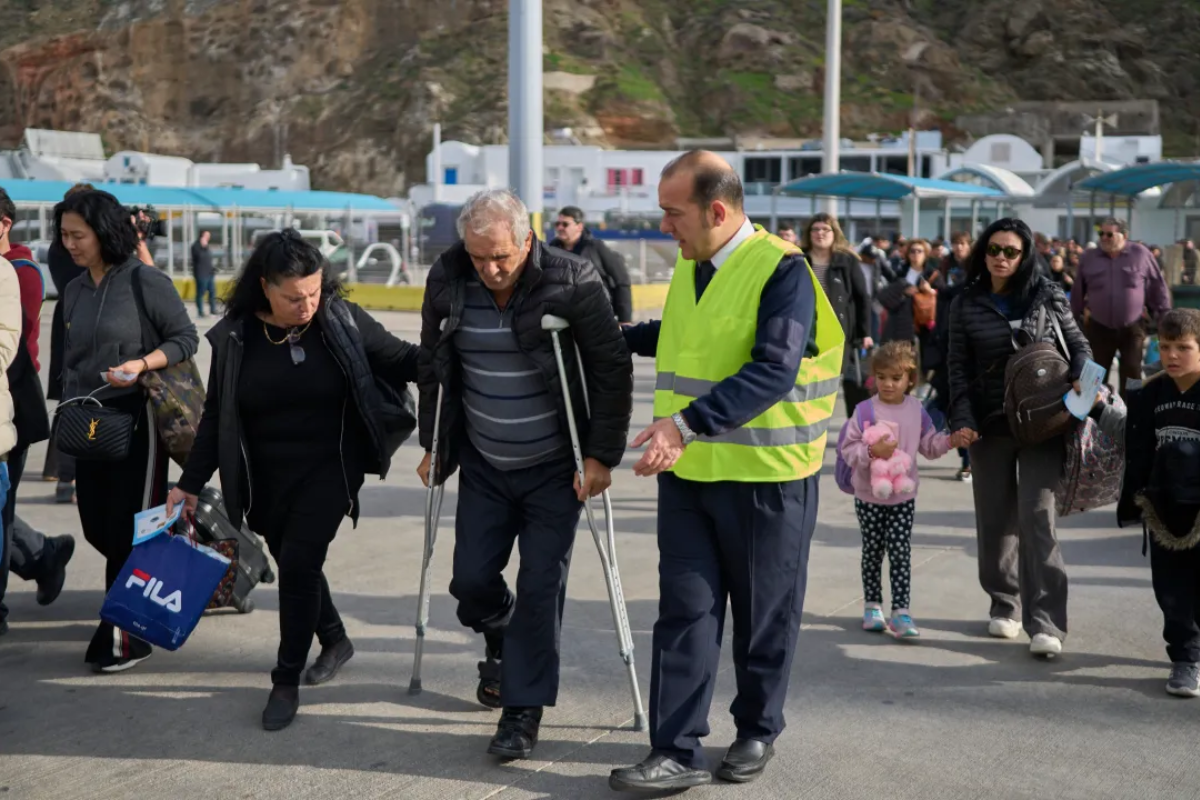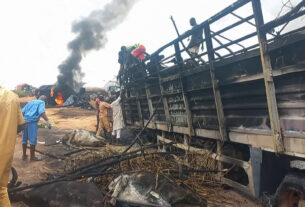A series of earthquakes have struck Santorini, Greece, forcing schools to shut down and disrupting travel. Authorities reported tremors ranging from 4.5 to 6.1 magnitude over the past week, with thousands of residents feeling aftershocks. Officials increased the number of flights to evacuate tourists and residents as concerns over a possible larger quake grew.
“The ground keeps shaking, and people are scared to stay indoors,” said resident Nikos Papadopoulos. Schools on the island closed indefinitely as engineers inspected buildings for structural damage. Parents rushed to collect their children, fearing another strong quake could hit without warning.
The Greek Institute of Geodynamics recorded over 50 tremors in three days, making this the most active seismic period in Santorini since 1956. Scientists monitored the island’s volcanic activity, as the region sits near an active caldera. Authorities warned that continued shaking could indicate magma movement beneath the surface.
Officials canceled ferry services to and from Santorini due to safety concerns. Airlines added extra flights to Athens and other cities to accommodate stranded travelers. Tourists abandoned their plans, with many choosing to leave before conditions worsened.
Emergency teams inspected damaged buildings, focusing on older structures in Fira and Oia. The government allocated funds for immediate repairs, prioritizing schools, hospitals, and historical sites. Residents prepared for possible stronger tremors, securing belongings and staying in open areas.
Experts advised against staying inside unstable buildings, urging people to follow evacuation protocols. “We must take every precaution, as the situation remains unpredictable,” said seismologist Maria Theodorou. Many families moved to temporary shelters or stayed with relatives in safer areas.
Local businesses reported declining customers as visitors left the island. Hotels and restaurants struggled with cancellations, with some owners fearing long-term financial losses. The tourism board assured travelers that safety measures were in place, but uncertainty remained.
Officials reinforced emergency plans, including evacuation routes and supply distribution. Hospitals treated minor injuries from falling debris, but no major casualties were reported. The Red Cross provided aid, delivering food, water, and medical supplies to affected areas.
Residents shared videos of shaking buildings and cracked roads on social media. The footage showed fallen debris and panicked crowds running to open spaces. Authorities urged people to avoid spreading misinformation and rely on official updates.
Scientists continued monitoring seismic activity, saying aftershocks could last for weeks. The Civil Protection Agency worked with international experts to assess the risk of a larger event. Residents remained alert, hoping the worst had passed while preparing for potential evacuations.
Geologists noted that Santorini’s location along the Hellenic Arc makes it prone to seismic activity. The island has a history of eruptions and earthquakes, with its last major eruption occurring in the 17th century BCE. Although experts say another eruption is unlikely, they continue to monitor signs of underground activity.
The Greek government urged calm but acknowledged the risks. Officials activated emergency response teams to assist displaced families and assess infrastructure damage. Residents received updates through text alerts, with authorities advising them to have emergency kits ready.
Airports and ports remained crowded as people tried to leave. Some travelers faced delays due to increased demand for flights. Hotels near the airport reported full occupancy, with stranded tourists waiting for available transportation.
Engineers assessed the structural integrity of key buildings, particularly in tourist-heavy areas. Some structures showed visible cracks, while others needed reinforcement before reopening. Schools and government offices remained closed until further inspections ensured safety.
Tourism officials feared long-term economic damage, as cancellations continued to rise. Some businesses offered discounts to attract visitors back, but uncertainty kept many travelers away. The Greek economy relies heavily on tourism, making the impact of the quakes a growing concern.
Authorities assured the public that emergency teams were ready to respond to further tremors. Scientists urged residents to remain vigilant and report any unusual geological activity. While some families considered relocating, others hoped to rebuild and recover from the crisis.
For now, Santorini faces an uncertain future. The island’s residents continue to experience aftershocks, with experts warning that seismic activity could persist. Officials stressed the importance of preparedness, reminding everyone that earthquakes remain an unpredictable threat.




